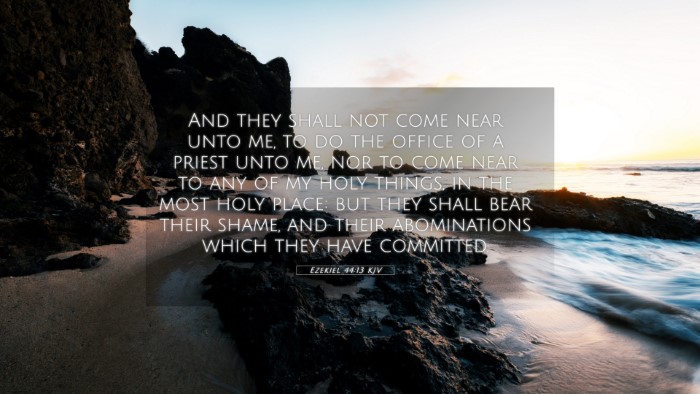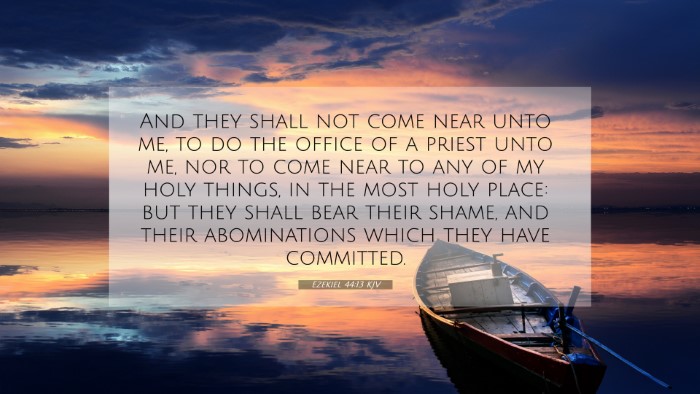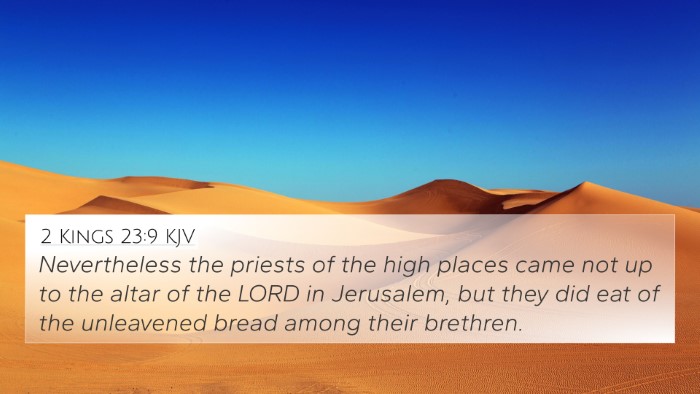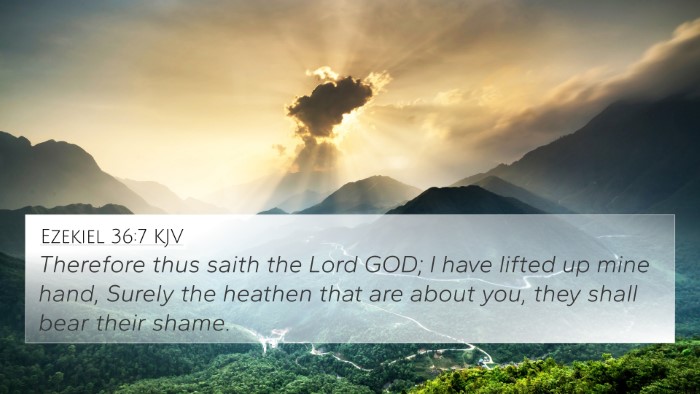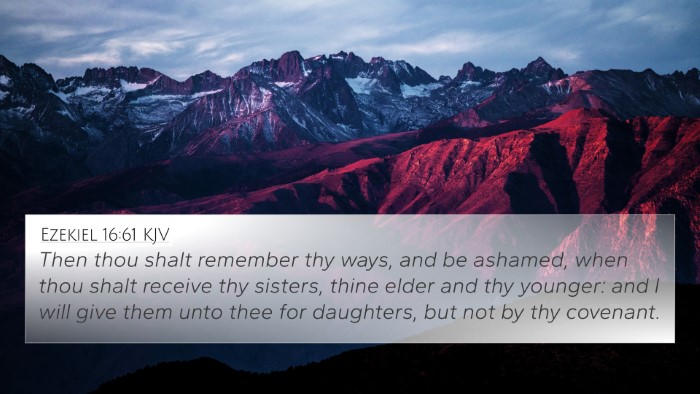Ezekiel 44:13 - Summary and Interpretation
Ezekiel 44:13 states:
“And they shall not come near unto me, to do the office of a priest unto me, nor to come near to any of my holy things, in the most holy place: but they shall bear their shame, and their abominations which they have committed.”
Meaning and Context
Ezekiel 44 is part of a larger vision of the future temple and the regulations concerning worship and priestly duties. Here, the Lord makes it clear that certain priests, because of their past iniquities, are barred from serving in the inner sanctum of the temple.
Insights from Public Domain Commentaries
Matthew Henry's Commentary
Henry emphasizes the seriousness of the priesthood, noting that responsibility comes with high expectations. The priests being barred from the holy place serves as a cautionary tale about the consequences of unfaithfulness and idolatry. It highlights God's demand for holiness among those who serve Him.
Albert Barnes' Notes
Barnes elaborates on the significance of “holy things” and “the most holy place.” He points out that this demarcation serves both as a punishment for past transgressions and as a means to restore proper worship. Those who are unqualified must acknowledge their failures instead of seeking to self-appoint themselves back into positions of honor.
Adam Clarke's Commentary
Clarke discusses how this exclusion illustrates the principle that spiritual leadership requires a life of integrity and righteousness. He notes that such restrictions serve both to purify the worship experience and remind the faithful of the gravity of approaching God without being properly prepared.
Related Bible Cross-References
- Leviticus 21:17-21: Discusses qualifications for priests and their requirements for holiness.
- Numbers 18:7: The responsibilities and privileges of the priestly office outlined.
- Hebrews 5:4: No one takes this honor on himself; he must be called by God.
- 1 Peter 2:9: Believers are called a royal priesthood, emphasizing the importance of holy living.
- Isaiah 59:2: Sin creates separation from God, akin to the exclusion from the holy place.
- Ezekiel 22:26: Describes the failure of priests to distinguish between holy and unholy.
- Ephesians 2:19-22: Believers are part of a holy temple built on the foundation of the apostles and prophets, emphasizing righteousness in access to God.
- Matthew 23:23: Jesus' denouncement of the Pharisees for neglecting justice, mercy, and faithfulness – essential for true worship.
- Revelation 21:27: Only those written in the Lamb’s book of life may enter the Heavenly city, reflecting exclusivity in holiness.
- Hebrews 10:20: Jesus' sacrifice opens access to God's presence, but this does not negate the call for holiness.
Thematic Connections
This verse, along with the references cited, reflects several important themes throughout the Scriptures:
- Holiness of God: A recurring theme emphasizing the need for sacredness in worship and life.
- Consequences of Unfaithfulness: Many passages reinforce that disobedience leads to judgment and loss of privilege.
- Purity in Leadership: The Bible underscores that those in spiritual authority must adhere to a standard that reflects God's character.
- Access to God: The principle that only those who are holy can approach God underscores the necessity of repentance and faith.
Cross-Referencing Insights
This particular verse in Ezekiel serves as a vital point of inter-Biblical dialogue. The connections made between Old Testament regulations and New Testament teachings illustrate the continuity of God’s character and decrees regarding holiness and service. Believers today should reflect on how this emphasis affects their understanding of worship, leadership, and personal conduct within the community of faith.
Tools for Bible Cross-Referencing
To enhance your study of the Bible, consider utilizing the following tools:
- Bible concordance for keyword searches.
- Bible cross-reference guide for thematic studies.
- Cross-reference Bible study methods for in-depth analysis.
- Bible reference resources for comprehensive insights.
Conclusion
Ezekiel 44:13 serves as a powerful reminder of the importance of maintaining holiness within the realm of worship and service to God. Through understanding this verse and its interconnections with other Biblical texts, we gain a clearer picture of God's divine standards and His expectations for those He calls to lead.

